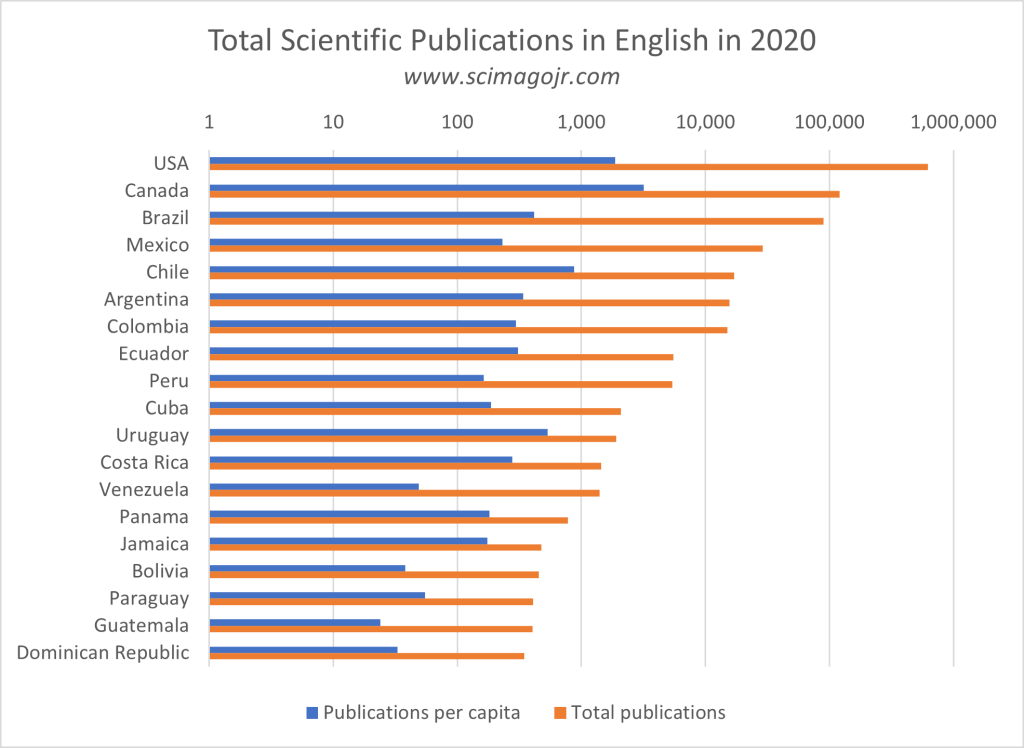Edwin Castellanos, Science Director, Inter American Institute for Global Change Research (IAI)
Imagine being a professor at a university on a small island in the Caribbean where your primary job is to teach courses on environmental sciences with a focus on forest ecosystems. One day, you get an email from a government representative asking you for advice on combatting a new environmental threat – a massive bloom of seaweed filling up the island’s beaches, affecting tourism, the fishermen, and the villagers living along the seashore. Even though this is not your primary area of expertise, you are one of the few professionals with a higher degree in environmental issues and, therefore, the best available person to provide advice.
It is not uncommon for scientists in countries with lower scientific development to be called to work on various problems loosely related to their area of expertise, as the number of experts in specific fields is very limited. Accessing the current literature to learn about the problem can be challenging as the relevant papers may be very costly. Language may be another problem, mainly when communicating with peers in other countries or scientists in other fields.
In this simple but real example of an environmental problem of regional scope, one can easily visualize the challenges that scientists in countries with limited scientific development face to provide helpful information and advice to policymakers, often on issues outside their expertise. Communication and collaboration are vital aspects that can significantly help scientists in small countries facing the challenge of informing their societies and advising their governments about complex global problems affecting their everyday lives.
The Inter-American Institute for Global Change Research, IAI, was founded 31 years ago to promote regional cooperation in the Americas for transdisciplinary research on aspects of global change, pursuing the full and open exchange of scientific information. This is done with the vision of an inclusive and sustainable Americas, where countries collaboratively meet the challenges posed by global change. The IAI facilitates scientists and other professionals in small countries to work with scientists from countries with greater scientific capacity in collaborative networks to exchange information and experiences within their own countries and with other countries in the region.
Furthermore, the IAI is strengthening the region’s capacity in two key aspects to face current global changes: transdisciplinary skills that foster the equitable co-production of knowledge by scientists and non-academic partners and science diplomacy skills related to science advisement, leadership, negotiations, and communication. These skill sets are rarely taught in the sciences. Yet, they are crucial for scientists, policy practitioners, civil society, and the private sector to work together to develop integral solutions to the world’s complex problems.
Working to promote scientific collaboration among 19 countries throughout the Americas can be challenging, partly because the level of science development varies tremendously among them. Figure 1 shows the vast difference in scientific production measured by the number of scientific papers published in a given year. Still, scientists in more countries with more developed scientific systems benefit by collaborating with scientists in other countries to tackle problems of regional or global scope. The lessons and information gathered in one country can complement the information from other regions to provide more effective solutions, assuming an equitable data and knowledge exchange.

Figure 1. Number of scientific publications in English for the member countries of the IAI for 2020 as reported by www.scimagojr.com . The publications per capita are per million inhabitants.
The IAI promotes this exchange of data and information through an open data policy adopted by country members. A committee on Open Data and Open Science oversees the implementation of the policy. Still, challenges remain, particularly when seeking to convert data into information and information into valuable knowledge for decision-makers at various levels in local and national governments. For example, the IAI’s Open Data Repository on Harvard Dataverse houses data and metadata from projects funded by the IAI in recent grant programs. However, the repository is better suited for the academic world rather than technical staff in government agencies who seek specific information to guide the design and implementation of policies.
Synthesizing data and information so that it is useful for governments is a formidable task that requires a permanent team of experts to produce policy-relevant communication products. The Intergovernmental Panel on Climate Change (IPCC) and Intergovernmental Science-Policy Platform on Biodiversity and Ecosystem Services (IPBES) are excellent examples of international scientific collaboration to tackle climate change and biodiversity. Still, there has been criticism of both bodies regarding their inclusion of scientists from minority groups. Similar efforts to coordinate global scientific work are needed in other areas, particularly scientific evidence on human dimensions related to development and poverty alleviation. Significant investment from governments and international organizations and a commitment to openly share these syntheses and assessments are needed to advance international negotiations and agreements on global issues.
Photo credit: Malcolm Lightbody via Unsplash
